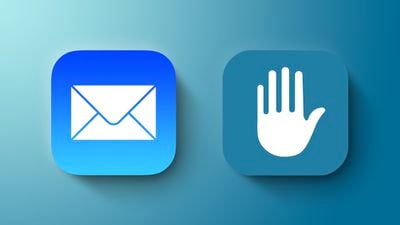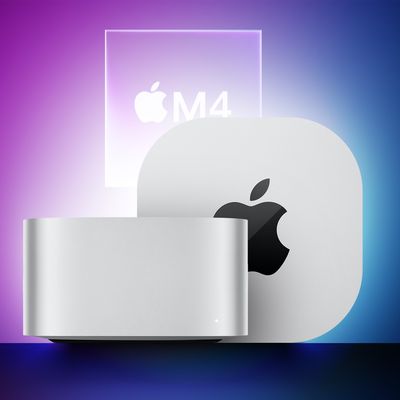Hide My Email Available in Mail App With New iOS 15.2 and macOS Monterey 12.1 Betas
iCloud+ subscribers who use Hide My Email can do so directly from the Mail app after installing the iOS 15.2, iPadOS 15.2, and macOS Monterey 12.1 betas that came out today.

The feature update is outlined in Apple's release notes for the beta, and it should make Hide My Email much more convenient to use on Apple devices. For those unfamiliar with Hide My Email, it is an iOS 15 and macOS Monterey feature available to anyone with a paid iCloud+ plan (priced starting at $0.99 per month).
Hide My Email allows users to create unique, random email addresses that forward to a personal inbox. It's similar to a password manager for email addresses, with users able to generate random email addresses for each website or login.
All the emails sent to the random Apple-created email address are forwarded to you so you can respond if needed, but the person on the receiving end does not see your real email address. And if you start getting spam emails from someone, you can just delete the email address and put a stop to it.
Hide My Email was previously available from the iCloud Settings on Apple devices, but now it can also be accessed directly in the Mail app. In the Mail app when composing an email, click on the "From" field to see the option to generate a "Hide My Email" email address. Selecting this feature will generate a random email address, effectively concealing your true email address.
Popular Stories
Leaker Sonny Dickson is back today with a new dummy unit image showing all four iPhone 16 Pro color variants, including the rose gold or "bronze" unit that replaces Blue Titanium in the existing iPhone 15 Pro models. The iPhone 16 Pro models are expected to come in black, white or silver, gray or "Natural Titanium," and a rose or rose gold color replacing Blue Titanium, according to Apple...
Multiple rumors have suggested that the iPhone 16 models are going to have an all-new button that's designed to make it easier to capture photos when the devices are held in landscape mode. Apple calls the button the Capture Button internally, and it is going to be one of the most advanced buttons that's been introduced to date with support for multiple gestures and the ability to respond to ...
Apple typically releases its new iPhone series in the fall, and a possible September 10 announcement date has been floated this year, which means we are just one month away from the launch of the iPhone 16. Like the iPhone 15 series, this year's lineup is expected to stick with four models – iPhone 16, iPhone 16 Plus, iPhone 16 Pro, and iPhone 16 Pro Max – although there are plenty of design...
Apple's iPhone 16 series is expected to debut in September 2024. This release follows Apple's trend of introducing new iPhone models annually in the fall. While the exact date has yet to be officially confirmed, the day of Tuesday, September 10 has been rumored as a possible announcement date, and September has traditionally been the month when Apple unveils its latest smartphone innovations. ...
Apple is moving forward with its project to develop a tabletop robotic device, according to Bloomberg's Mark Gurman. Subscribe to the MacRumors YouTube channel for more videos. The device would feature a large iPad-like display mounted on a "thin robotic arm" that would allow the display to tilt and up and down and rotate a full 360º, and it would serve as a "smart home command center," a...
It's almost September, but Apple still has multiple new product launches planned for 2024. New iPhone 16 models and Apple Watches are coming in September, and we're also going to get at least three Mac updates with M4 chips this year, according to rumors. Here's what's on the horizon. MacBook Pro Apple plans to refresh both the 14-inch and 16-inch MacBook Pro models, adding M4 chips. The ...
T-Mobile was fined $60 million by the Committee on Foreign Investment in the US (CFIUS) for negligence surrounding data breaches, reports Reuters. CFIUS penalized T-Mobile for failing to prevent or disclose unauthorized access to sensitive customer data. When T-Mobile merged with Sprint, it signed a national security agreement with CFIUS, which is what led to the fine earlier this year....





















